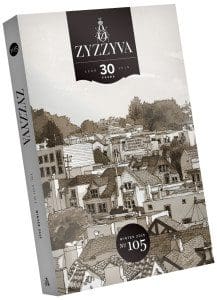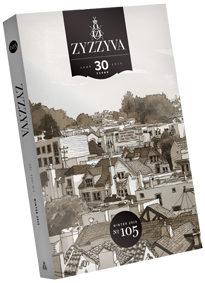In 1946, Lionel Trilling penned a barbed sort of defense of “little magazines”:
“They are snickered at and snubbed, sometimes deservedly, and no one would venture to say in a precise way just what effect they have—except that they keep the new talents warm until the commercial publisher with his customary air of noble resolution is ready to take his chance, except that they make the official representatives of literature a little uneasy, except that they keep a countercurrent moving which perhaps no one will be fully aware of until it ceases to move.”
In her introduction to The Pushcart Prize XI: Best of the Small Presses (1986–87), Cynthia Ozick mused in reply to Trilling, “What the small presses keep warm, and alive, are those very forms ‘the cultural situation’ tends to submerge: essay, story, poem.”
So here we are at the close of 2015, charged with keeping new talents and vital forms warm; charged, too, with keeping a quiet countercurrent moving. In practical terms, I take this to mean we are tasked with encouraging authors doing laudable work in contemporary literature, bringing their works to print in the finest form possible, and advocating tirelessly for their value. We endeavor to sustain our authors with all we have to offer (printed page, honorarium, online presence, events, moral support), and hope that, in time, our efforts help them find publishers, agents, and yet more readers, and garner career-sustaining awards and grants, as well. Beyond this service to writers, the journal must offer its readers—dedicated adventurers in contemporary writing, invigorated by work not yet codified by any canon—all the pleasures and insights of literature.
For ZYZZYVA, 2015 marked three decades of all this: discovering new talent, supporting writers and artists at all stages of their careers, and presenting innovative work.
But we also celebrated something less grand yet essential: thirty years of work we might file under “keeping the lights on”: paying rent and bills, fulfilling orders, fixing the printer, maintaining a website, hustling for ads and donations, rebooting the wireless connection, fixing the printer—once again.
This is no small thing. Not many journals, let alone independent ones, make it this far.
And while we may not see the world as so openly adversarial as Trilling saw it in 1946, by its sheer indifference ours may be an even more hostile environment than the one he was observing; it is almost certainly, in public forums, a less civil one. Yet we persevere, and do so with a sense of purpose no less keen than ever.
Working out of San Francisco plays a part in keeping us focused. We all know the city is changing, and that artists and writers and the organizations that support them are under increasing pressure. In a fraught economy of apps and “sharing,” San Francisco may offer the country a representative future, one destined to reach across the continent and wreak disruption along the way. I hope we may yet also offer the country a representative model in how to push back against some of these tides, reversing the crowding out of culture and the diminishment of bohemian life, working vigorously to preserve the diversity of voices and vocations that make a city thrive.
I’m not inclined to see a binary opposition between tech and the arts as inevitable or organic, and I’m troubled by the prevalence of that attitude— and how easily it lends itself to a corresponding condescension to the arts (and publishing, too), as though the only way to look forward or to be visionary is through the lens of an app; as though we must take for granted that paper and ink are hopelessly outdated. Too often the implicit question seems to be, How can tech improve literature and help publishing? Too seldom do we ask what literature might teach tech.
The literary and visual arts are an essential part of what has made San Francisco innovative, beautiful, and visionary. It is a concentration of culture, after all, that makes a city a city. Without it, San Francisco would be all surface, a glorified bedroom community with pockets of its urban past preserved for tourists.
It’s a tough time, but ZYZZYVA has endured booms and busts before thanks to you, dear reader, and to the indispensable financial support of every donor, subscriber, and board member; and to the hard work and dedication of every volunteer and intern.
And daily there are reminders of how vital and fun this work is; how lucky we are to be doing it. We’re encouraged by the astonishing wealth and originality of talent in contemporary literature—among those we publish and those we’re reading outside the journal. We’re thrilled by the wide recognition and acclaim that has arrived for authors such as Marlon James and Elena Ferrante, and are inspired by their daring and important work. We’re heartened by the recent awards and recognition our own contributors have received, and by the robust support of the National Endowment for the Arts and the Zellerbach Family Foundation. We’re inspired, too, by the dedication of our colleagues and their fine work in publishing, in bookstores, and in the arts. We’re honored that each of you holding this volume has carved out time in your day and space in your mind for the pages we’ve labored over.
A hearty and heartfelt toast of gratitude to all. Here’s to the adventure and joy of the endeavor.


